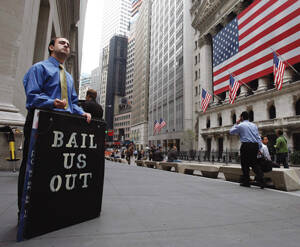Blessed Pope John XXIII published “Peace on Earth” on April 11, 1963, in direct response to the Cuban missile crisis, which threatened global thermonuclear war during the tense days of Oct. 16-28, 1962. The Holy See marked the upcoming 50th anniversary year of “Pacem in Terris” on Oct. 24 at the United Nations in New York. The Mission of the Holy See to the United Nations, along with two co-hosts, the Sovereign Military Order of Malta and Pax Romana, sponsored a symposium titled “The Encyclical Pacem in Terris: Its Fiftieth Anniversary and its Relevance to the 21st Century.”
A great deal of attention has been paid to the focus on human rights, disarmament and the call to world community in “Peace on Earth.” Archbishop Francis Chullikatt, Apostolic Nuncio to the United Nations, noted that Blessed Pope John’s encyclical was addressed for the first time in papal history to “all men of good will.” Many of the participants at the Holy See’s symposium reminded us that in addition to goodwill, an economic system that is grounded in the common good is also indispensable to global peace.
Accordingly, of particular interest, and the source of some controversy, was the focus on global economic issues in “Peace on Earth.” Joe Holland, president of the Pacem in Terris Global Leadership Initiative and professor of philosophy and religion at St. Thomas University in Miami Gardens, Fla., addressed what “Peace on Earth” recounted as the errors of “liberal capitalism” and “scientific socialism” that resulted from the individualism of Adam Smith and the materialism of Karl Marx. Holland argued that in “Peace on Earth” Pope John breaks new ground when he “recognizes that a new global era has emerged for the human family with a new global economy. In response, he calls for global governance [a ‘worldwide public authority’ commensurate in scale with the global economy] directing the global economy to the global common good.”
Likewise, Angus Sibley, author of “The ‘Poisoned Spring’ of Economic Libertarianism,” lamented the influence of the Austrian School economists Ludwig von Mises and Friedrich von Hayek, which led to Mises’ twin errors that “nothing is left of government if one denies the law of the market” and “liberty is always freedom from government.” To the assertion that free-market capitalism is based on the “laws of nature,” Sibley said that Pope John denounces this type of error. “Many people,” Pope Jo hn says, “think that the laws that govern man’s relations with the state are the same as those which regulate the blind, elemental forces of the universe.” On the contrary, he says, politics and economics must observe those divine laws that “clearly indicate how a man must behave towards his fellows in society.”
Sibley believes that Pope John’s call for an international public authority must “promote the worldwide common good in matters of economics, society, politics and culture.” In his remarks, Archbishop Chullikatt focused on the encyclical’s groundbreaking call for an “international public authority,” founded on a “new juridical order” that could most effectively bring peace to a troubled international order. Clearly, church teaching holds that subsidiarity is a good governance principle that at times requires larger entities to solve problems that cannot be solved at the local, or in this case, the national level.








